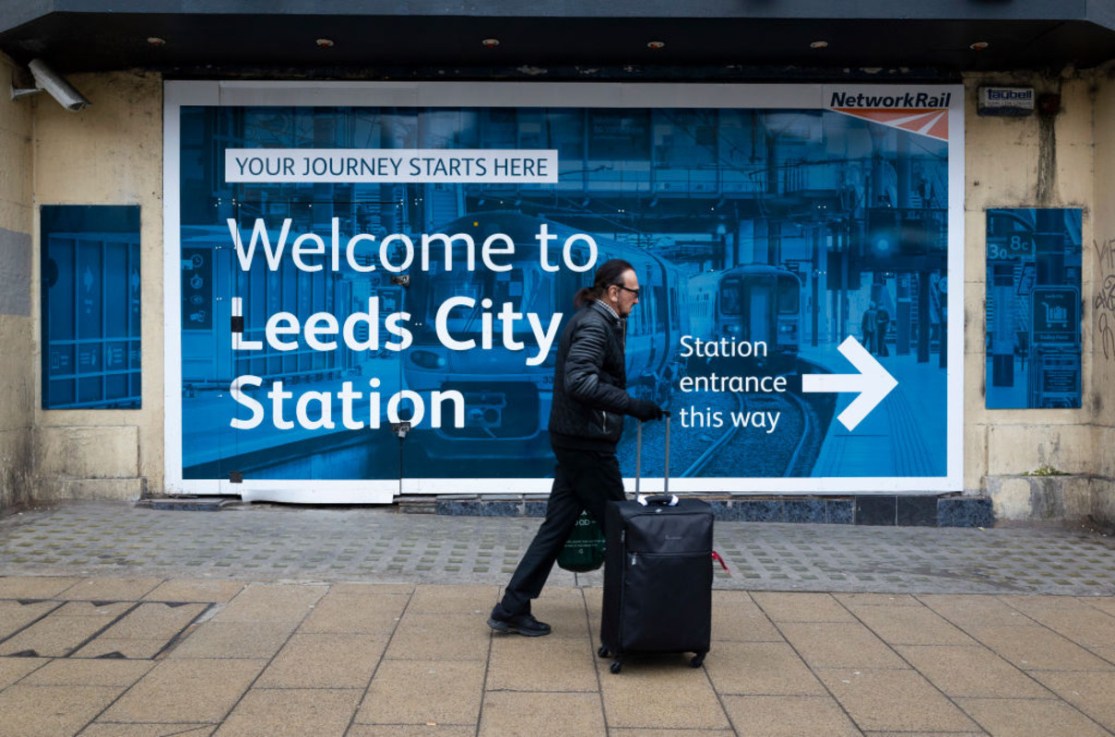Leeds-upon-Thames? How the West Yorkshire heartland is luring British institutions away from London
Over the past few years Leeds has emerged as a go-to destination for British institutions looking to venture beyond the M25. Since 2018 Channel 4, the Bank of England, the Financial Conduct Authority and the UK Infrastructure Bank have all opened hubs or expanded their presence in the city, adding hundreds of new jobs and [...]


Over the past few years Leeds has emerged as a go-to destination for British institutions looking to venture beyond the M25.
Since 2018 Channel 4, the Bank of England, the Financial Conduct Authority and the UK Infrastructure Bank have all opened hubs or expanded their presence in the city, adding hundreds of new jobs and millions of pounds to the local economy.
While “North-shoring”—the practice of companies relocating from London to Northern England—isn’t a new trend, the recent surge of firms choosing Leeds over larger nearby cities like Manchester marks a shift.
So how is the West Yorkshire city holding its own?
The answer, according to the chief executive of Northern Powerhouse Partnership, Henri Murison, could lie nine miles west in the neighbouring city of Bradford.
With one of the youngest and most diverse populations of any UK city, Bradford has had its own share of relocation wins in recent years.
In 2019 the professional services giant PwC opened an office in the city with 66 full-time employees, which it said it plans to grow to more than 500 in the next couple of years.

Last summer the BPI – the representative voice for record labels across the UK – announced it had selected Bradford as the location for its new Brit School, inspired by the Croydon model which has launched the careers of stars including Adele, Amy Winehouse, and Jessie J.
Murison said these recent developments underline the changing priorities of some of the country’s biggest organisations.
He said: “If you’d have told me 10 years ago that one of the big four accounting companies in the UK would be opening an office in Bradford I’d have laughed at you. But something very significant has happened since then.
“Now you’re seeing these institutions looking to move away from being pale and stale and so they’re making very deliberate decisions to do things differently.
“You have a very young and very diverse talent pool there that speaks to organisations’ desire for change.
“In this respect Bradford is one of Leeds’ greatest assets. They have different names and separate councils but in economic terms they’re a single economy.
“Leeds would not have won the bid for Channel 4 without Bradford. The diversity and creativity it brings to the table should not be understated.”
‘Leeds has the talent’
While Bradford has helped to sweeten the case for Leeds, Murison added that the city’s strength as a financial hub dates back decades.
He said: “West Yorkshire has long been a financial services hub, home to major players like First Direct and Yorkshire Building Society, and that’s generated a wealth of expertise in the region.
“The Bank of England also had a presence there for a while in the form of its cash handling centre which closed in 2023. It then replaced that with this much bigger operation – it’s looking to have 500 staff in Leeds by 2027.
“We then saw the sector reach critical mass so that the regulator, which had decided to base itself in London for decades, realised it made sense to have a headquarters in Leeds, especially in terms of attracting emerging talent.
“Thirty years ago ambitious young professionals wanted to move to London, but what we’re seeing now is that unless their family lives there, they can’t afford to take those grad jobs.
“That’s really changed the rules of the game, because financially they’re so much better off in the North.
“They want to stay there, so if you’ve got companies offering them that opportunity, they’re going to have first pick over organisations that refuse to branch out from London.”



